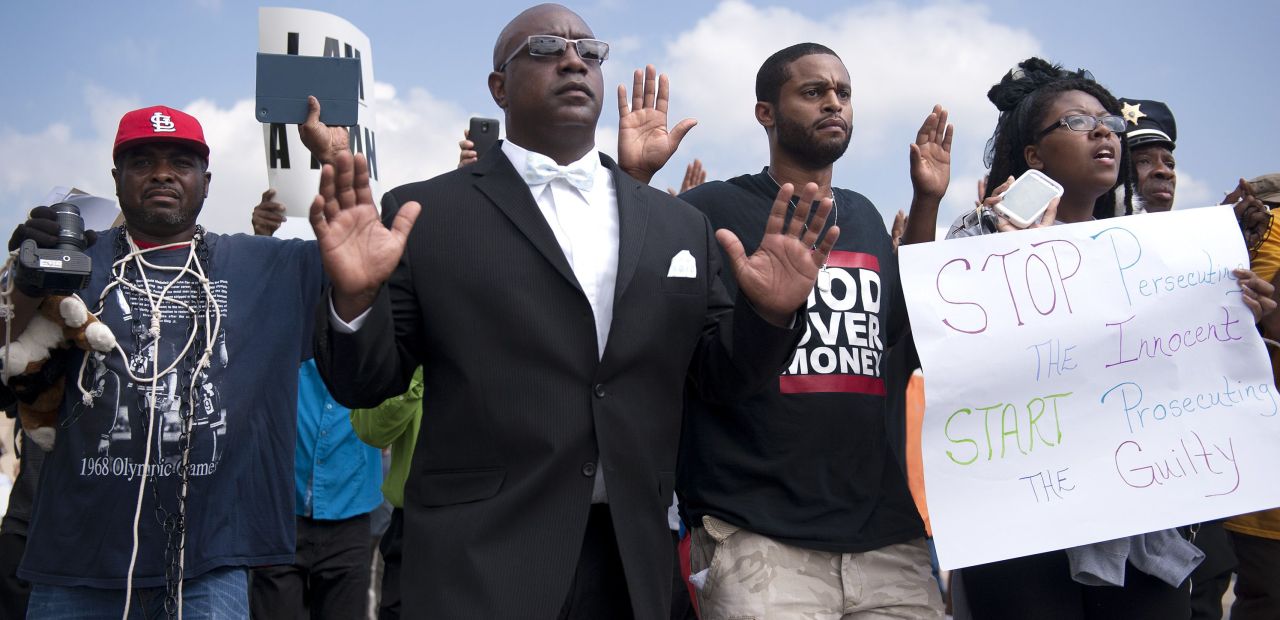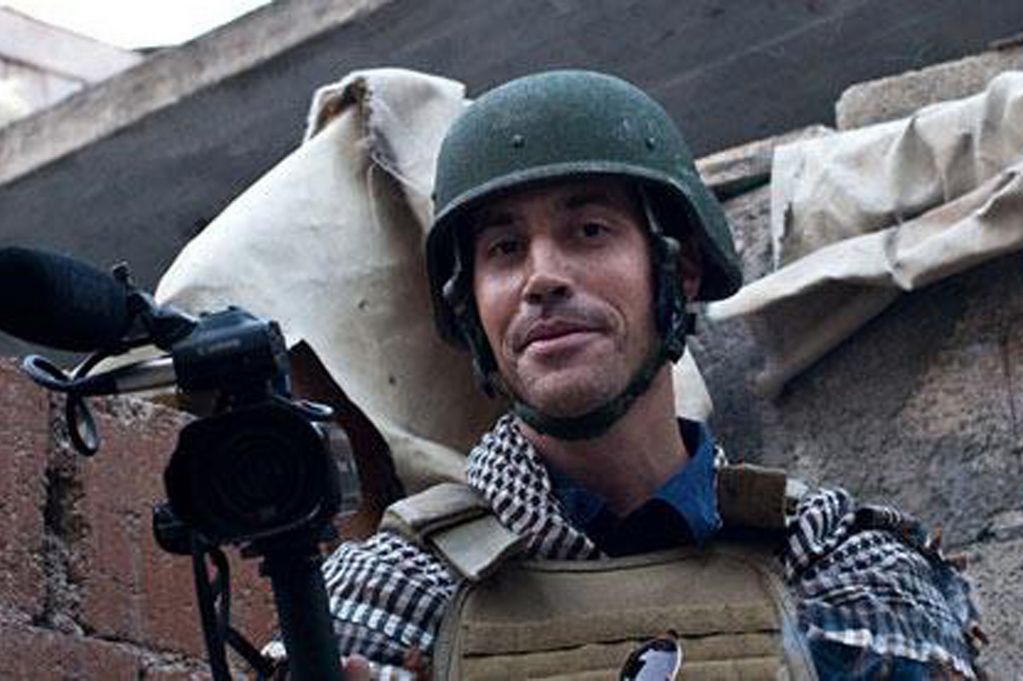1.
“How journalists like James Foley fall victim to world’s ‘most dangerous conflict’ for reporters”: Powerful commentary from Terrence McCoy of The Washington Post regarding the capture of journalists Foley (who was executed) and Steven Sotloff.
“Their capture and Foley’s apparent execution raise fresh questions about how important conflicts across the globe are covered — and the dangers freelance journalists, eager for bylines, face to report them. The Committee to Protect Journalists called Syria, for example, ‘the most dangerous country in the world for journalists.’ According to the organization’s most recent statistics, 69 journalists have been killed covering the Syrian conflict, many of them Syrian. More than 80 reporters have been kidnapped. Around 20 are currently missing, many of whom are believed to be held by the Islamic State. ‘Missing from the statistics is anything about the kind of journalists who goes to Syria and why,’ journalist James Harkin, who covered Syria as a freelancer, wrote in Vanity Fair earlier this year. ‘After the death of Marie Colvin, in a blizzard of Syrian Army shells in Homs in February 2012, much of the Western media drew back from covering the country. Meanwhile, a lightly resourced, laughably paid, almost wholly uninsured cadre of freelancers, often armed with little more than a notebook and a mobile phone, infiltrated Syria anyway.’”
2.

“11 Things White People Should Stop Saying to Black People Immediately”: An impassioned piece written by Mic.com’s Derrick Clifton in response to the tragedy in Ferguson.
“2. ‘I don’t have white privilege. Stop saying that I have white privilege.’ White privilege isn’t inherently about being raised in an affluent, two-parent home with high educational attainment and markers of upward mobility in American society. White privilege is the many built-in perks afforded to white people by virtue of being born with white skin and white ethnicity in a social and legal system that enforces white supremacy as the rule of law. It’s not having to seriously think about or discuss how the situation in Ferguson will affect friends and relatives or even how a broader justice system will work to protect (or to not protect) the constitutional rights of black people. White privilege is being able to walk away from the conversation, or to stop reading a piece about racism when it stirs up discomfort, rather than wrestling with the subject matter and owning up to personal biases and limits to understanding. White privilege can be used for good too, of course, if those who wield it actively challenge the prejudices of their white friends and reject white supremacy. But as long as white people keep denying their privilege, white officers with badges and institutional power on their side will continue killing blacks with impunity.”
3.

“Remembering Robin”: Marvelous writer and former child star Mara Wilson recalls her memories of Robin Williams when she worked with him on the set of “Mrs. Doubtfire,” at her blog, Mara Wilson Writes Stuff.
“Robin would do anything to make me and the other kids laugh. Those hand puppets that dance alongside the genie in Aladdin‘s ‘Friend Like Me’? That must have been his suggestion, because Robin made those in real life. He’d break them out between takes to entertain us between takes. ‘I don’t like you,’ his left hand would say to his right. ‘You smell like poop!’ I would laugh uproariously — I was five, so poop jokes were the height of hilarity — as his right hand yelled back ‘Well, there’s no toilet paper at my house!’ When he saw me watching him work on his laptop during downtime, he played a sound file of Dorothy from the Wizard of Oz screeching ‘You wicked old witch!’ When we were filming the petting zoo birthday scene, he fed a pony oats out of his hat, then held it out to me and said, ‘Wanna wear it?’ When we were filming the climactic dinner party scene, he would make his carpet bag bark like a dog under the table, then order it to be quiet. He seemed to know instinctively what we would find funny, and never had to resort to saying anything that was inappropriate for children. He was, after all, a father himself.”
4.

“The Big Sleep“: At Ferdy on Films, Roderick Heath provides a sprawling analysis of Howard Hawks’ 1946 Bogart/Bacall classic.
“Of course, ‘The Big Sleep,’ although a mystery and a crime drama, isn’t really about its plot. Its connective tissue is provided by entwined incidents of romance and evil, rather than riddle, with narrative velocity provided by how Marlowe sinks up to his neck in the proliferating consequences of the perversities of a family of American aristocrats who have turned the national dream into an id-inflected nightmare purely by dint of self-indulgence. The animating mood of Chandler’s novels, captured beautifully in this film in spite of its buoyant segues, is one of miasmic corruption and evil welling out of a still-callow, urban America that’s infected with secret appetites fed by feudal princes of the underworld, creating a noxious symbiosis that can only be battled by someone who understands it intimately. Bogart, who had found his real break in cinema playing hood-eyed heels ready to break teeth and plug bellies, was ideal to play such an intimately conversant hero, hard knocks and rude facts impressed upon his persona. Marlowe’s first appearance in the Sternwood Mansion sees him immediately fascinated by effetely competent butler Norris (Charles D. Brown), and the thumb-sucking teenaged seductress Carmen Sternwood (Martha Vickers), who, as Marlowe puts it, tries to sit in his lap whilst he’s standing up.”
5.

“Leonard Maltin’s Movie Guide Ending After 45 Years—Internet Kills Iconic Print Paperback”: A eulogy penned by Pete Hammond of Deadline Hollywood.
“With the recent near-death of film stock, a print book largely covering movies made in that medium is probably, ironically, and sadly, an anachronism. And the Internet with sites like Internet Movie Database, Rotten Tomatoes, Metacritic and their ilk has taken over the sector so why not join them with an online version of the book? Maltin says it all came down to money. ‘We were unable to find an effective way to monetize it on the Internet,’ he said. ‘The iPhone app we had kind of fizzled too. The other answer, though, is these capsule reviews and capsulized information were meant to be in a paperback book. They were designed for this medium, for this format, and weren’t meant to be posted day and date with movie openings. The Internet has a different imperative and a different set of rules. We could conceivably adjust, but simply putting the book online would not be wise,’ he said. Maltin said that he, like everyone else, is an avid user of the web. ‘It’s a fantastic tool. I don’t have my head in the sand about this. We served a real purpose for several decades when there was no other source and I have had tremendous feedback and continue to get tremendous feedback from people who grew up on this book including a lot of filmmakers,’ he said.”
Image of the Day

At The Dissolve, Noel Murray reports that the Tom Cruise would-be blockbuster, “Edge of Tomorrow,” has been renamed for its home video release. The tagline, “Live. Die. Repeat.” has taken over.
Video of the Day
“Last Week Tonight with John Oliver” cements its status as one of the best shows on television with this brilliantly scathing and sobering commentary on the recent events in Ferguson and police militarization.












